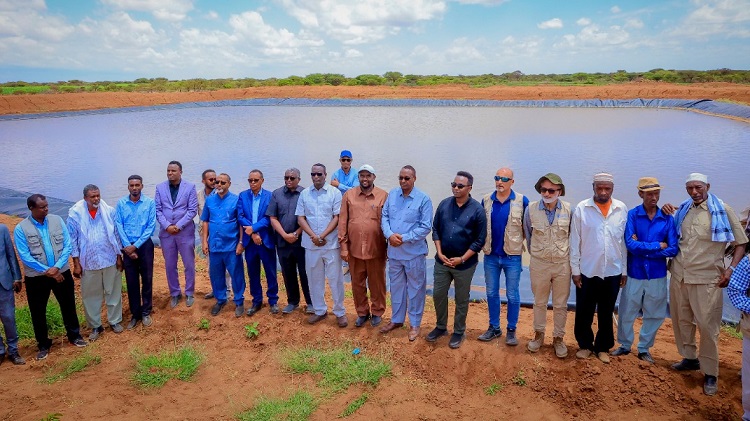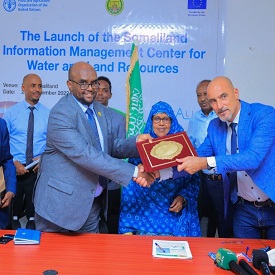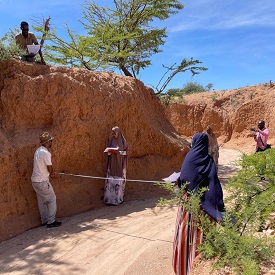About Us
About Us
The Information Management Center for Water and Land Resources (IMC) was established through funding from the European Union, in collaboration with FAO SWALIM and the Somaliland government, under the Integrated Land and Water Resources Management Project (ILWRM). The center's genesis lies in its commitment to providing comprehensive information on water and land resources to various stakeholders, including government ministries, international development agencies, and academia. Structured with a board comprising Ministries such as Planning & National Development, Environment and Climate Change, Agriculture Development, Livestock Development & Rural Development, and National Disaster Preparedness & Food Reserve, the IMC operates under their oversight. This board assumes a pivotal role in ensuring the effective implementation and supervision of the center's activities. The core objective of the IMC is to gather, analyze, and disseminate data pertaining to water and land resources. This involves conducting case studies and furnishing vital information to relevant ministries. The aim is to facilitate informed decision-making in the formulation of strategies, policies, and projects related to water and land resources management. With a strong emphasis on sustainability, the IMC endeavors to support the government and international development organizations by establishing a robust information and baseline framework before interventions. By doing so, it aims to contribute to the creation of a solid foundation for sustainable development in the realm of water and land resources. Furthermore, the center is committed to providing accurate information consistently throughout the timelines of projects and programs, ensuring a continuous and reliable flow of data for effective decision-making.



Our Departments
The GIS and Remote Sensing Department employs advanced spatial technologies to create detailed maps and assess land and water dynamics. By integrating Geographic Information Systems (GIS) and Remote Sensing, this department not only facilitates accurate mapping but also conducts spatial analysis to identify trends and changes over time. It plays a pivotal role in environmental monitoring, disaster response planning, and resource allocation. The GIS and Remote Sensing Department collaborates closely with other departments to provide a spatial dimension to their data, enhancing the overall capacity of the IMC to address complex issues related to water and land resources.
The Water Resources Department engages in a comprehensive examination of water-related data. This includes monitoring surface water and groundwater availability, assessing water quality, and analyzing hydrological patterns. The department utilizes advanced modeling techniques to simulate water scenarios, enabling accurate predictions for future resource management. Additionally, it plays a key role in assessing the impact of climate change on water resources. Through its research and monitoring activities, the Water Resources Department contributes valuable insights that guide sustainable water management practices, ensuring the resilience of water sources in Somaliland.
The Land Resources Department focuses on understanding the intricate dynamics of land use and cover. It conducts in-depth soil analyses, evaluates land degradation, and monitors changes in vegetation patterns. This department also collaborates with local communities to gather traditional knowledge about land management practices. By combining scientific data with local insights, the Land Resources Department aids in the formulation of policies that promote sustainable land use. Furthermore, it actively contributes to initiatives aimed at combating desertification and enhancing soil fertility. Through its holistic approach, the department strives to balance conservation efforts with the need for responsible land utilization.
The Information Management Department serves as the nerve center of IMC, ensuring the smooth flow of information across all departments. It establishes and maintains robust data management systems, emphasizing data quality, accuracy, and security. This department develops standardized protocols for data collection, storage, and retrieval, fostering interoperability among different departments. It also oversees the implementation of Information and Communication Technology (ICT) solutions to enhance the efficiency of data processes. The Information Management Department actively engages in capacity building, training staff on the latest technologies and best practices in information management. Through its cohesive efforts, this department ensures that the IMC operates as a dynamic and responsive hub for water and land resource information, facilitating evidence-based decision-making at all levels.

ABDIHAMID JAMA
Director

Rahma
Deputy Director
